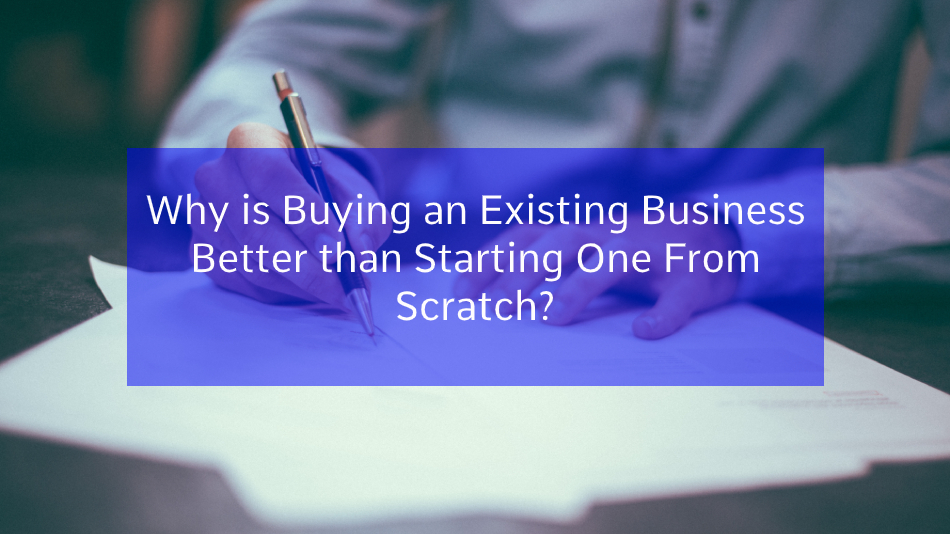Buying an existing business or starting one from scratch is never two sides of the same coin. Both options present its own pros and cons, and in most cases, the outcome of your decision depends on the context, timing, investment and several other factors. This blog will cover the pros of buying an existing business over creating a start-up.
# From an investment perspective, any investor will be willing to invest in an already established business with a proven revenue model than a start-up which is not yet investment-ready. That makes all the difference.
# Start-ups generally struggle in terms of revenue generation, and their expenses include registration, legal, equipment, machines, staff salary, real estate, etc. Without financial support or an alternative business income, it is easy for start-up entrepreneurs to become demotivated at some point.
# An established business has better branding credentials including registration, copyrights, industry certifications, digital assets, etc. This can improve the confidence level of the buyers.
# The biggest advantage of an existing business is its strong customer base and positive customer experience that buyers prefer. Start-ups or new businesses will initially struggle in the area of customer acquisition and retention.
# An established business is successful because of its vast network of contacts—customers, clients, retailers, suppliers, channel partners or even franchisees—owing to which a new business may not make the cut easily.
# A new business can only survive when major part of the revenue is reinvested to meet recurring expenses and operational costs, whereas an established business has a steady income flow and the muscle to scale up its operation at any point of time.
# Though a robust growth strategy is important for both established as well as new businesses, existing businesses have an edge over the later; stated differently, start-ups more often burn and crash through millions, falling out of the buyer’s favour.
# Most buyers may prefer businesses that have a trained workforce so that business continuance is not affected because of a change of ownership. While existing businesses have proper training programme in place, startups usually employ people who can juggle tasks—considered less productive.
# Buying established businesses is generally less risky in nature because of a healthy growth record and financial performance, whilst a new business may require several years of operation to put it on a growth track.
# Finally, buying a new business may demand total commitment and discipline in taking it forward, while established businesses, due to their streamlined operation and the best business practises, in addition to the discussion above, make a prospective trading option.
Are you confused whether to buy an existing or a new business? Talk to the consultants at GBCORP, as we offer a range of options for buying and selling any business.




